Sir David Attenborough has been presenting wildlife programmes for 70 years
Seventy years after he first fronted a wildlife programme, Sir David Attenborough is keenly aware of the impact they can have.
"The world would be in a far, far worse situation now had there been no broadcasting of natural history," he said.
"People have found it a source of fascination and beauty and interest, and this has become key to looking after the world."
In September 2024, the BBC is marking 90 years of broadcasting from Bristol. We spoke exclusively to Sir David, who has presented many of the programmes made at BBC Bristol's Natural History Unit.
When Sir David's broadcasting career began in 1954, just 3.2 million people had television licences in the UK.
The goal of programmes like Zoo Quest was to capture wild animals for zoo collections, the accepted practice at the time.
Now, Sir David's programmes all carry a strong message - that the natural world is at risk more than ever before.
"People are aware of the problems of conservation in a way which could not exist without broadcasting," he said.
"The perilous state that the natural world is in at the moment, these things are apparent to people all around the world.
"You don't watch a natural history programme, I hope, because you think it's going to be good for the natural world; you do so because it is rivetingly interesting, and complicated, and beautiful.
"The awareness of people around the world about ecological damage, that is due to natural history," he added.

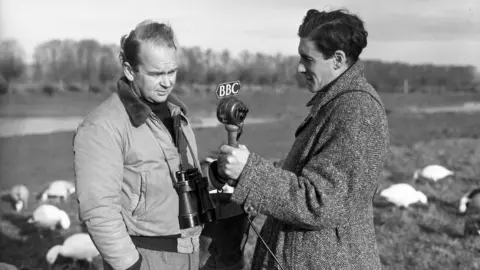
Peter Scott (l) went on to host wildlife programme Look, while Desmond Hawkins (r) pioneered early radio shows on the natural world
Bristol's association with wildlife programming goes back to the mid 1940s, when The Naturalist was produced on the Home Service by Desmond Hawkins from the city.
"Desmond was the king of natural history broadcasting and an accomplished naturalist," said Sir David.
Ten years later, in 1955, wildlife programme Look, presented by Peter Scott, featured pioneering German filmmaker, Heinz Sielmann, the first person to film inside a woodpecker's nest.
"This was sensational, everyone in Britain was blown away by this, and because there was only one television network, it was all you talked about at the bus stop when you were going into work," recalls Sir David.
The switchboard at the Lime Grove studios was jammed with viewers ringing in to find out more, and it gave the BBC the nudge to set up the Natural History Unit in Bristol in 1957.
'Shows on green slime'
In 1979, Sir David presented Life on Earth, a landmark television programme made in Bristol, which attracted around 15 million viewers.
"Bristol led the world to be truthful," he said.
"It started this with radio, and when television came along, Peter Scott and Desmond Hawkins continued that tradition.
"The other big mega power in broadcasting was the United States, and in the 1970s, viewers there thought natural history was just lions attacking antelopes.
"Bristol's programmes taught them that termites could be just as interesting.
"When we first started trying to get the subscriptions to finance the plans I had, I remember making the mistake in pitching this to an American network controller.
"I waxed very eloquently about how the programme would be the history of life from the microscopic beginning, and the executive turned to me and said 'you mean it's going to be about green slime?'
"I replied 'more or less,' but we managed to flog it in the end."

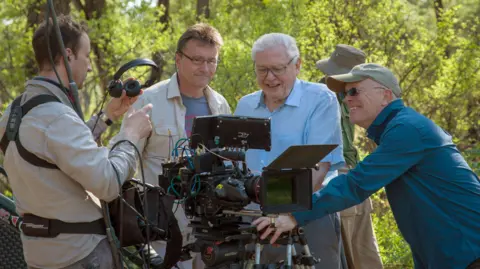 BBC Studios
BBC Studios
Today's equipment is capable of capturing wildlife scenes like never before
Sir David's programmes have gone from being shot on 16mm film stock with clockwork cameras in 1954 to ultra high definition 4k in the present day.
When he was making Zoo Quest, cameras would only film for 40 seconds before the clockwork motor ran out.
Today, filmmakers gather hundreds of hours of video just to capture one special moment which may only last for seconds.
"When we started, the film people in London were very derisory about 16mm, they called it 'bootlace'.
"We couldn't film on 35mm because we couldn't drag around those enormous great big cameras.
"Almost every year, we had better facilities. The film became smaller, the recording apparatus became more sensitive.
"I've tried to film Orangutan, and they do absolutely nothing - they just sit in the trees, and they're very difficult to see.
"Now along comes a drone, and you can film things that you couldn't possibly ever see from the ground," Sir David said.

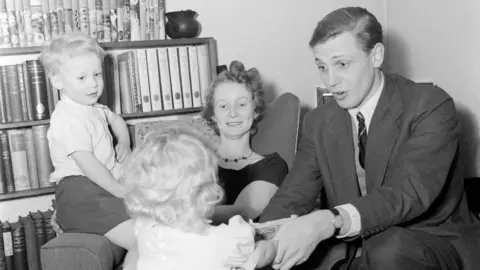 Getty Images
Getty Images
Sir David's children kept him in London when he was a young television producer
Sir David was awarded Freedom of the City of Bristol in 2013, to mark his connections with the programmes made there.
He almost became a Bristolian, but family life and work pressures intervened.
"In 1955, I was told I was to be made head of the Natural History Unit in Bristol, and I said I would prefer not to do so because I had just bought a house in London, my son and daughter were fixed in schools.
"I also had responsibility for Prime Ministerial broadcasts with Anthony Eden, which I wasn't all that interested in, but nonetheless I had the responsibilities.
"Had it happened three years earlier I probably would have been there.
"It is always a joy to visit Bristol, the city has a regional personality.
"If you're a broadcaster, particularly a natural history broadcaster, there is nowhere else like Bristol in the world."

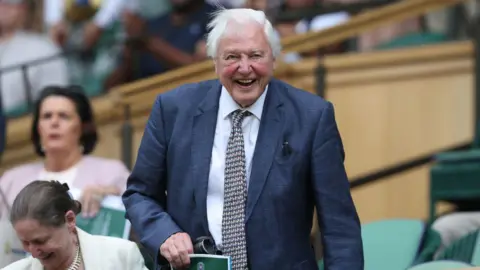 Getty Images
Getty Images
Sir David was given a standing ovation when he took his seat at Wimbledon this year
In his 98th year, Sir David's next programme is a seven-part series called Asia, which will premiere later in 2024.
But despite the global acclaim his career has earned him, he remains very modest about his role in the shows he presents.
"I'm given huge credit for things that have nothing to do with me, because I speak the words and that's the easiest business part of the entire outfit," he said.
"A lot of people think that I'm there recording the programme, working the camera, working out the travel and putting in the expertise, whereas all of these things are part of the team.
"People are aware of the problems of conservation in a way that could not exist without broadcasting, and the BBC can claim that we're leading that," he added.

 Movie
Movie 1 day ago
8
1 day ago
8 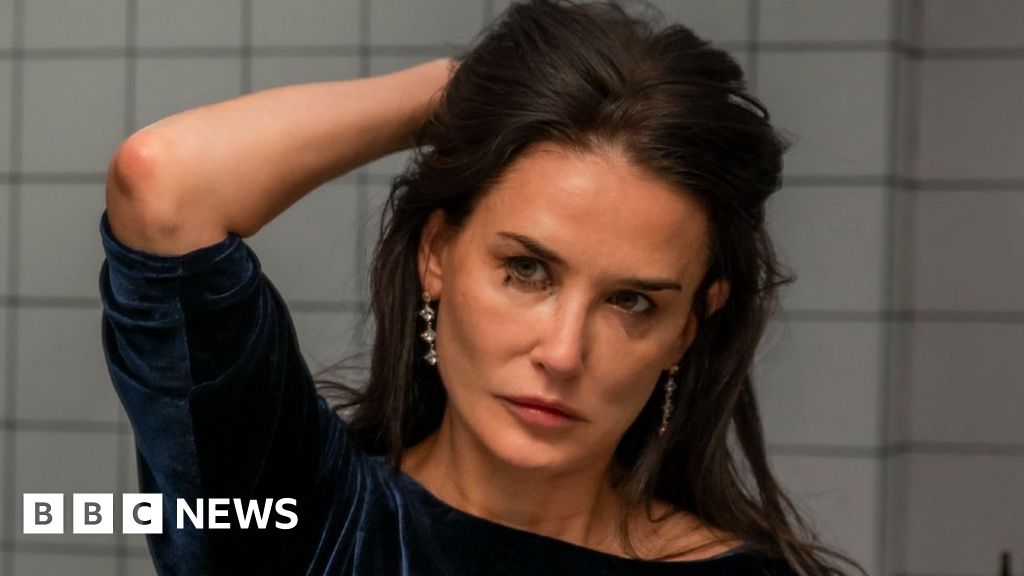
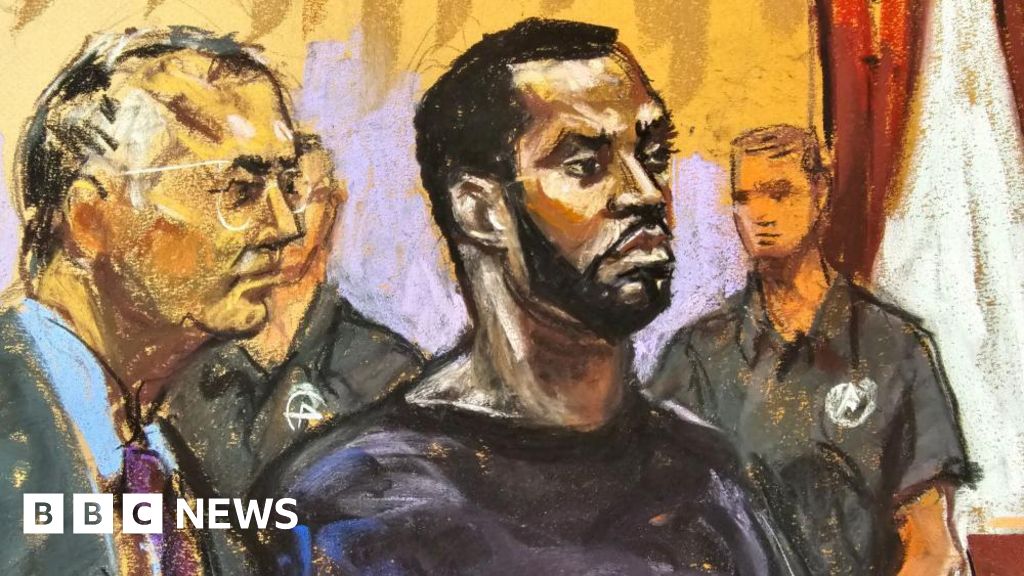
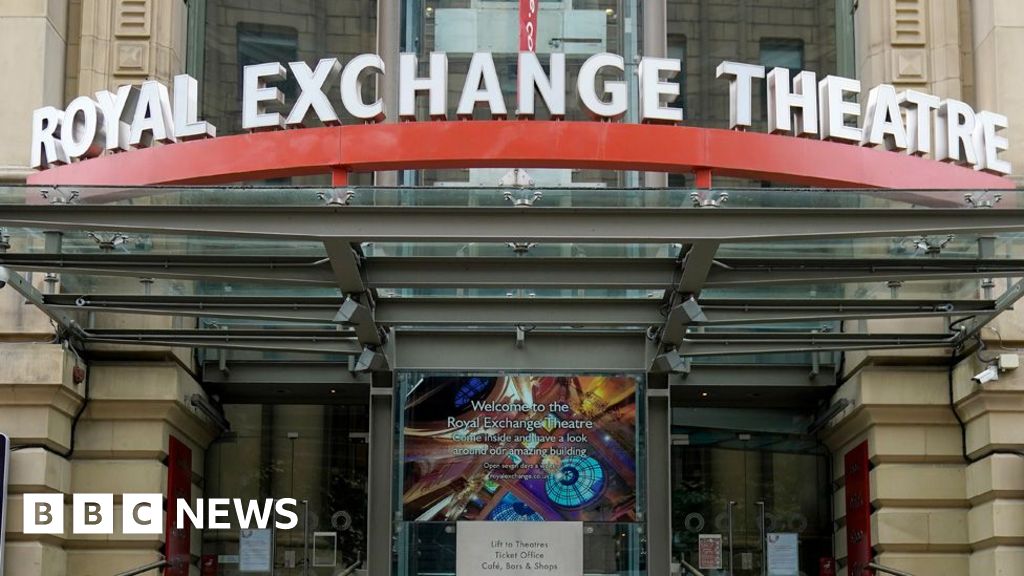
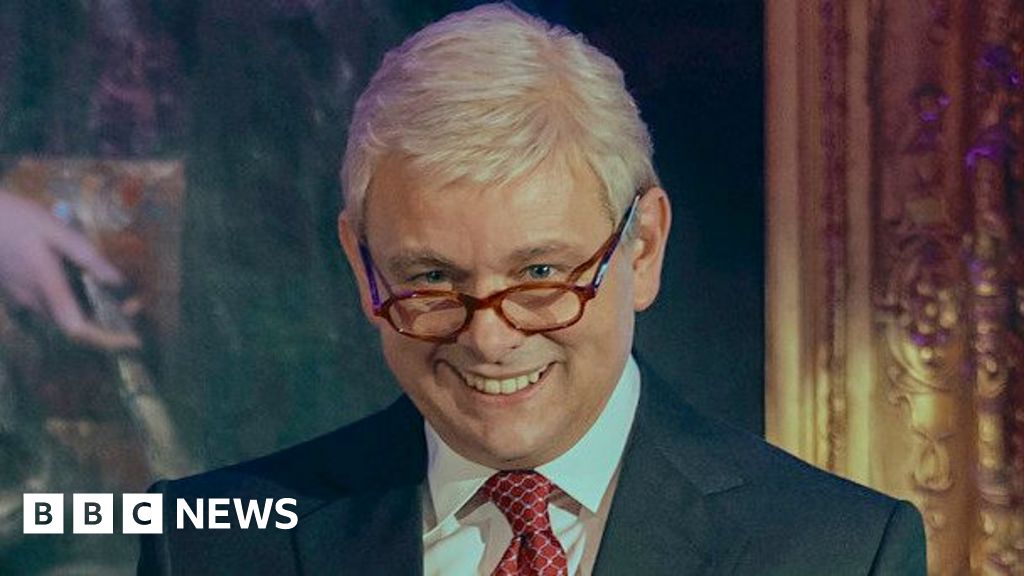
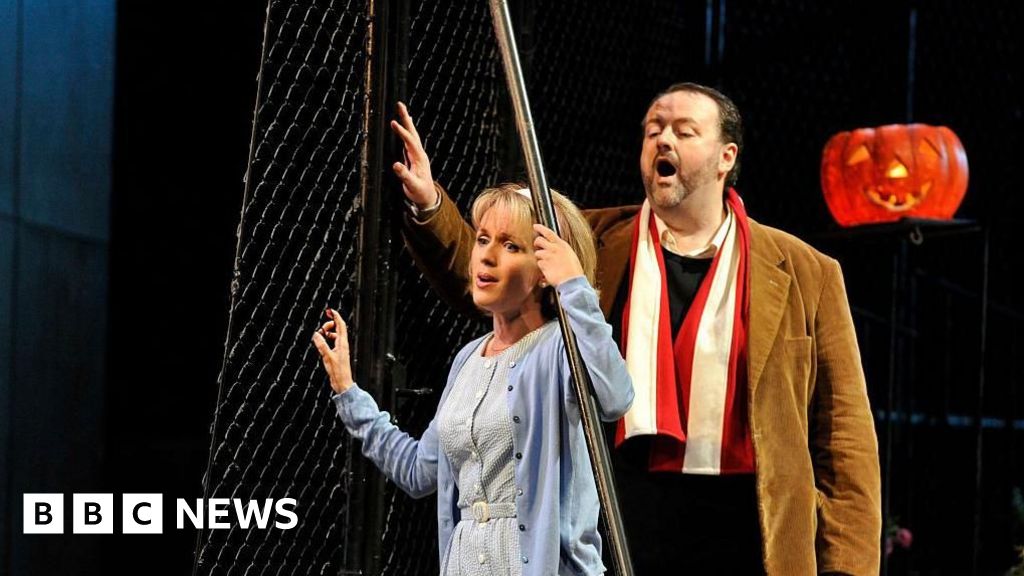

![Presidents Day Weekend Car Sales [2021 Edition] Presidents Day Weekend Car Sales [2021 Edition]](https://www.findthebestcarprice.com/wp-content/uploads/Presidents-Day-Weekend-car-sales.jpg)



 English (United States)
English (United States)